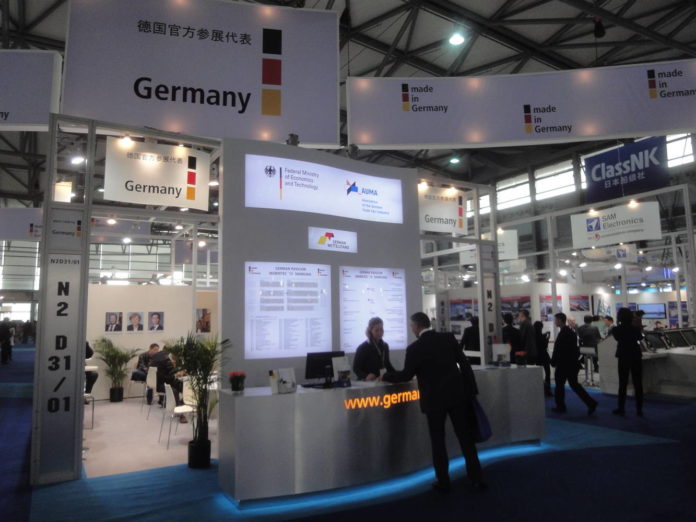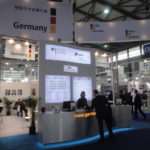
In this HANSA interview, Alexander Nürnberg, Chairman of VDMA Marine Equiment and Systems, talks about risks and potentials, missed opportunities and strategies for the future of German suppliers
What is your interim assessment for 2017 in comparison to the last Marintec in 2015?
Alexa[ds_preview]nder Nürnberg: Overall, business has certainly declined by a third.
Do you think your members will ascend to past heights again?
Nürnberg: We will certainly not reach the levels of 2008 or 2010, rather more likely two thirds or three quarters of these volumes will define the new maximum. This is what I see for the market in three to four years time.
The number of shipyards in China has shrunk considerably. Does this result in higher pricing pressure?
Nürnberg: The quantity of shipyards has decreased dramatically. 60 to 70% of those shipyards operational in the boom times are no longer there. From this time, however, there is also a relatively high capacity of suppliers. This means we have considerable pricing pressure. If a yard gets only little money for a ship, we also get little money for our equipment. Added to this is the localization. The current and next five-year plan of the Chinese government aims at obtaining all components locally by 2025. This is already noticeable as local providers are preferred.
Do you think that the extent of cooperation or joint ventures between German and Chinese companies is increasing?
Nürnberg: Those players who are not actively establishing regional manufacturing or make any efforts to present a local proportion must have a product that is not available in China. Anyone who does not have such a solution must make sure to give the own offering a Chinese touch. To do so there are many options, either by cooperation, joint ventures or through the purchase of a company.
Are there concerns among the VDMA members that they may not prevent a brain drain of know-how in cooperative ventures?
Nürnberg: Absolutely. Know-how always flows in cooperation, a fact you have to be aware of. We do not want to give it all away, of course. This is a tightrope walk.
How can this be solved?
Nürnberg: The easiest thing would be to keep on developing the products so that the Chinese are not up to date. But that is easier said than done. In addition, doing the new building business together while managing the fleet alone is another option. The latter is a frequently used business model right now.
China is increasingly focusing on the booming cruise market. Does this increase the competitive pressure?
Nürnberg: Yes, this is the case in all industries when new players are added.
How do German actors prove their expertise?
Nürnberg: They do so by providing good quality and interesting concepts. In Finland and Germany, for example, there are very large plants produced in an enormously well organized fashion. The whole range of logistics defines the core business.
Some critics say, the truly innovative future topics such as automation and satellite technology are not dominated by German, but rather foreign hands, seen from the investment point of view. How do you react to such estimations?
Nürnberg: I have to agree but only in part. As for the »new« business models such as automation or remote control we have missed three to four years. Others have been faster and they are now advertising their portfolio much stronger, even though they have not sold anything yet. I believe that the German industry has a lot of potential in this area, but the potential has to be exploited and marketed for the maritime industry accordingly. If the application comes, we will also be there. I’m not worried about this.
Do you expect further consolidation, further takeovers or mergers in the German supply industry?
Nürnberg: At the moment, I see no great impulses to consolidate. Some very large overseas players buy here and there, but I can not see a »run«.
So you do not expect blood-letting here in Germany?
Nürnberg: No. We might see more system partnerships. But that does not have to be anything bad at all.
In world trade there are currently some protectionist tendencies, geopolitics have become more important again. China, the US, Korea and the Brexit give proof of this dynamics. Does this already affect the business of German suppliers and what do you expect for the coming years?
Nürnberg: This is one of the threats we see. State support programs to the extent that they have been operating in China and Korea require an enormous amount of consideration in the form of local procurement. This leads to restrictions of free trade. At this point, we need political support, since companys do not make any more progress.
And do you get this support?
Nürnberg: Well, with China and Korea our policy is nevertheless very cautious. Compared to other industries such as the automobile industry, shipbuilding is obviously not large enough.
What are the biggest challenges today and in the near future? And what strategies do you have?
Nürnberg: In the short run, we want to maneuver into a good position in new projects through good contacts to shipyards and shipping companies. In addition, we rely on systemic partnerships to offer solutions rather than single pieces of equipment. This can be a distinguishing feature to offer added value. In addition, we want to accompany the maritime manufacturer as a service partner for shipping companies instead of just delivering to shipyards. This is the trend, and a great opportunity for us.
Michael Meyer





















